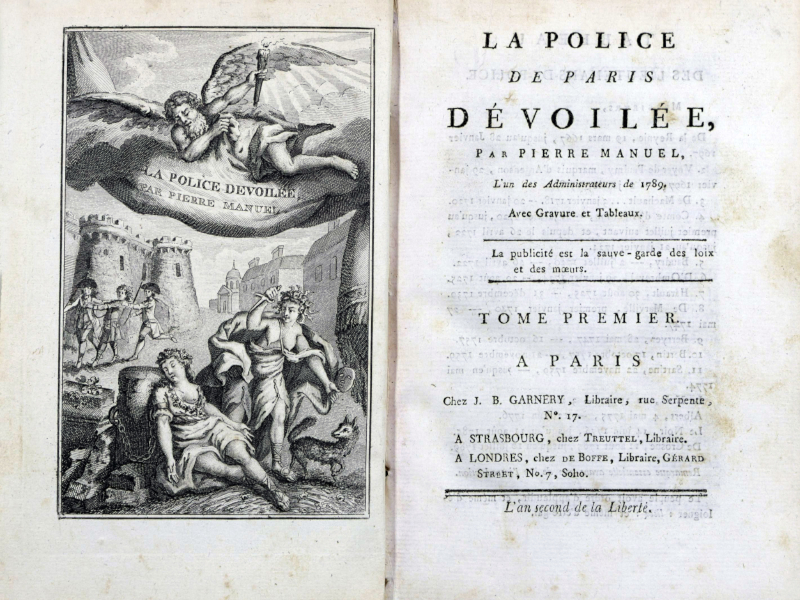
Fire in the library
Books that set fire to the Europe of Enlightenment
The National Library of France has among its most precious collections the section on l’Enfer, Hell. A similar section exists in the British Library that includes the Private Case, with a select collection of erotic books, as well as the Phi Collection of the Bodleian library of the Oxford University, the Delta Collection of the Library of Congress in Washington, the Fondo Riservata Erotica of the National Braidense Library in Milan, the collection “Remota” of erotic content of the Bavarian State Library in Munich, and there is even talk, although without absolute certainty, of the Inferno of the Vatican Library. Those are places that house books and manuscripts of different eras, which were saved from the bonfire and that were chased and prohibited for including ideas that were considered heterodox from a political, social, cultural and religious point of view. The XVIII was without doubt the century in which these types of works achieved they best expression.
Those books, written by some of the best philosophes of the moment, helped to create the spirit of Enlightenment, especially in France. Their authors suffered from exile, continuous surveillance, persecution, and usually, jail. This only caused readers being more interested on their books, and some of them became best-sellers in the Europe of the moment. Some examples are the Encyclopédie by Diderot, the Voltaire editions, the Baron of Holbach, Rousseau, Helvetius, Raynal, the Marquis of Argens, Mirabeau, Mercier, Rétif de la Bretonne, Pidansat de Mairobert, or Meslier.
And these works, which were not necessarily erotic, although they were always dangerous for the Old Regime, are the germ of modern democracies for its defence of human rights, equality, tolerance, laity, militant philosophy, or, what it is the same, the figure of the critic intellectual with the power. All are principles that still prevail these days, when political correctness or the so-call cancel culture, censorship, question the freedom of expression, one of Democracy essential pillars.
Baron d’Holbach was one of the most notable members of the so-called Radical Enlightenment, in whose salon in the rue Royale Saint-Roch in Paris gathered the most notable intellectuals of XVIII century Europe, such as Diderot, D'Alembert, Hume, Adam Smith, Laurence Sterne, Horace Walpole, Edward Gibbon and Benjamin Franklin. When the three hundredth anniversary of the birth of Baron d'Holbach (1723-1789) are commemorated, it is more necessary than ever to look back and revisit the work of those men, in order to uphold their intellectual legacy as a point of reference for the challenges facing Europe in the XXI century, where certainties seem to have been diluted in an ocean of uncertainties.
This exhibition, of necessarily limited scope, presents for the first time a non-existent collection of books in the National Library of Spain, which came from private collections and from the Historical Library of the Universitat de València. The exhibition is completed by a series of contemporary artistic photos of the XX century, in black and white, of the Valencian photographer Pedro Hernández, which tries to question the texts of the Age of Enlightenment.












